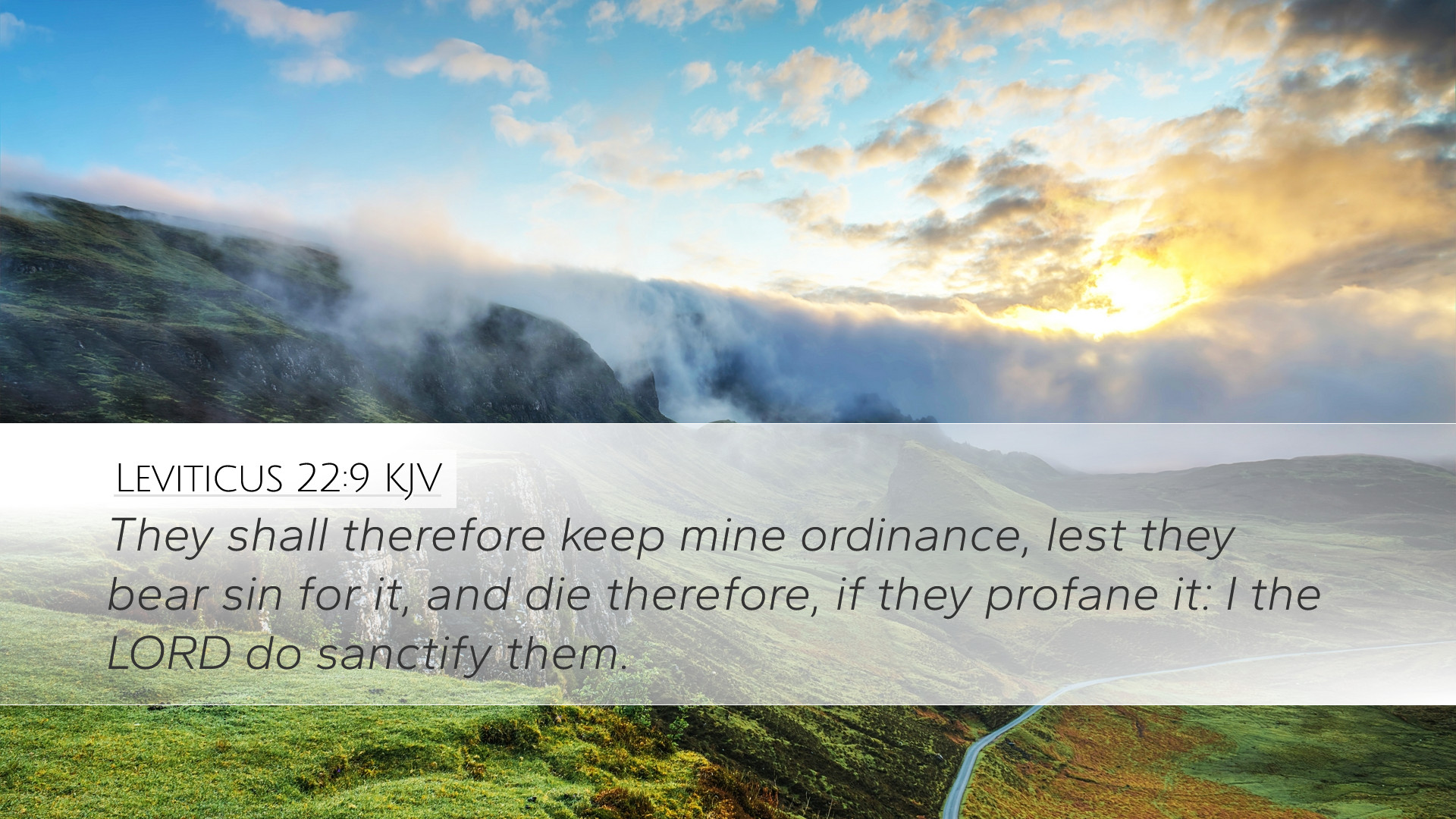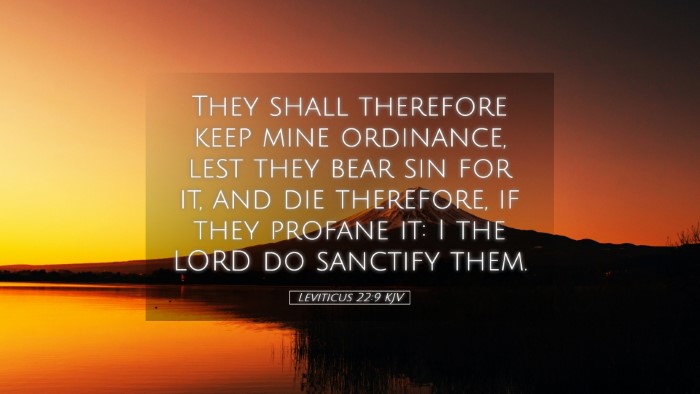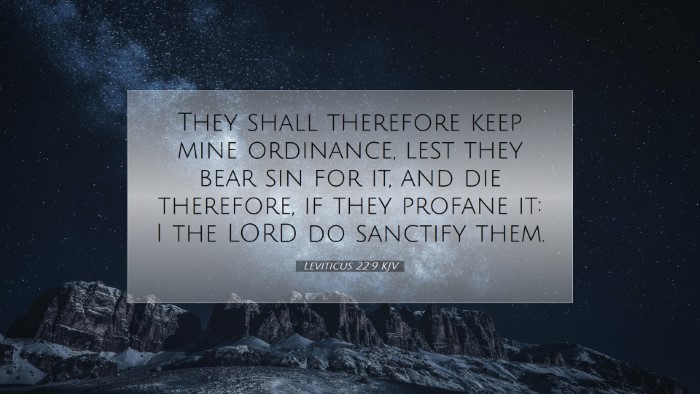Commentary on Leviticus 22:9
Leviticus 22:9 states, "They shall therefore keep My ordinances, so that they do not bear sin because of it and die thereby if they profane it: I am the LORD who sanctifies them." This verse is part of the instructions given to the priests regarding their duties and the holiness of their service. Through the insights of several public domain commentators, we can gain a deeper understanding of the implications and significance of this scripture.
Introduction to the Holiness Code
Leviticus is known for its focus on purity, holiness, and regulations concerning worship. In chapter 22, the focus narrows on the priests and their responsibilities, emphasizing their role in maintaining the sanctity of offerings presented to God.
Exegesis of the Text
-
Matthew Henry:
According to Matthew Henry, this verse emphasizes the strictness of God's law concerning the priests and their service. He notes that if the priests failed to adhere to these ordinances, they would not only bear the weight of their sin but also face the dire consequence of death. Henry highlights that this serves as a sober reminder of the seriousness with which God views His commandments. For Henry, the death of the priests would symbolize the termination of their ability to mediate between God and the people, showcasing the gravity of their responsibilities.
-
Albert Barnes:
Albert Barnes elaborates on the concept of being sanctified by God. He posits that the term sanctify indicates being set apart for a specific divine purpose. The priests, therefore, are to keep the ordinances not just as a ritualistic obligation but as an expression of their unique position before God. Barnes emphasizes that their ceremonial cleanliness and adherence to these laws were paramount to their acceptance before God. Failure to meet these standards could result in dire consequences, thereby inviting an understanding of the weight of holiness expected from those serving in the temple.
-
Adam Clarke:
Adam Clarke focuses on the nature of sin in the context of worship. He notes that profaning the offerings not only tarnishes the act of sacrifice but also erodes the relationship between God and His people. Clarke states that the warning highlights the necessity for discernment and respect in worship practices. He asserts that this condition is inextricably linked to an individual's spiritual state. Thus, maintaining the integrity of worship is not merely a rule but essential to the spiritual health of both priests and the congregation.
Theological Implications
The exhortation to keep ordinances in Leviticus 22:9 underscores the idea of holiness in worship. The presence of God necessitates purity, and this becomes particularly significant in the priestly context.
-
Worship and Holiness:
Worship can only be offered acceptably when there is a conscious effort to live according to God’s expectations. The holiness prescribed in Leviticus challenges modern audiences to consider how they approach worship today.
-
Consequences of Negligence:
There is a strong emphasis on the consequences of neglecting these commandments. The death linked to such transgressions serves as a grim warning. Pastors and church leaders should view this not just as a historical consequence, but as an ongoing spiritual principle.
Practical Applications
The implications of Leviticus 22:9 resonate in numerous ways within both personal and corporate worship contexts. The following points summarize some key applications for modern readers:
-
Attitude Towards Worship:
As contemporary believers, we must foster an attitude of reverence and respect toward God in our worship practices. This verse serves as a reminder that our approaches should align with God’s holiness.
-
Accountability in Leadership:
Pastors and church leaders carry the burden of ensuring that worship is conducted in a manner that honors God’s commands. They must cultivate an environment where holiness is pursued actively within the church.
-
Personal Purity:
Likewise, individual believers are called to examine their lives for any areas of unholiness which may affect their worship. Personal purity aids in cultivating a sincere relationship with God.
Conclusion
Leviticus 22:9 articulates the seriousness of the priestly role within the context of holiness and worship. Drawing from public domain commentaries, we can collectively glean insights about the importance of adhering to God's statutes, the sanctity embedded within worship, and the grave consequences associated with spiritual negligence. As we reflect on this verse in light of its implications for our practice of faith today, let this serve as a call to uphold holiness in all areas of life, understanding the profound weight of our approach to God.


